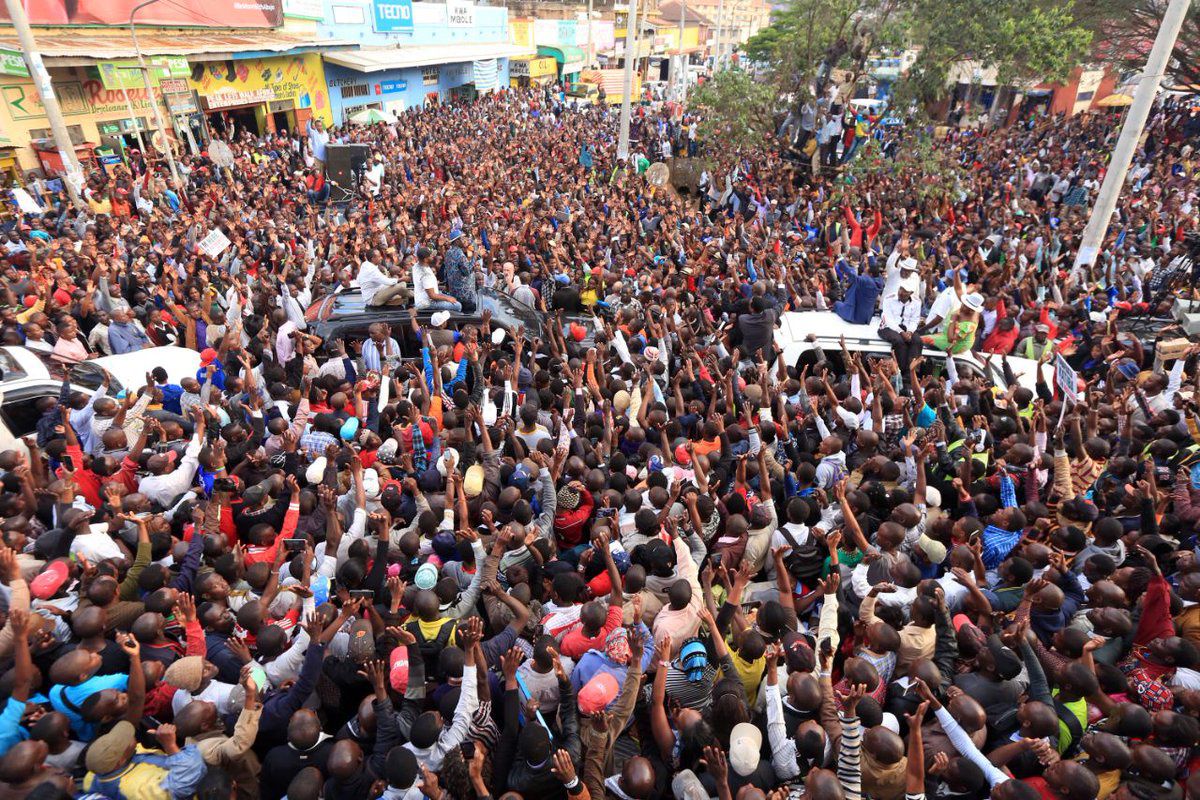Only 33% of Kenya's Population Voted in the Election Rerun
Just 33 percent of Kenyans voted in the country's rerun election, down from 80 percent in the first election.

Update 10/27:CNN has reported a 33 percent turnout, for the rerun election. This is a major drop from the first round, which had an 80 percent turnout. This might come as a surprise to many, who believed the election would be an easy win for incumbent president Uhuru Kenyatta and the Jubilee Party, though it is being projected that he will still win the overall vote.
Kenya's main opposition party, headed by Raila Odinga is counting the low turnout as a success. As it stands, there is yet to be a clear path out of the current political crisis, as some are already advocating for a third rerun. Clashes between police and demonstrators continued into Friday, with the death toll now at 5, reports the Guardian.
Continue for yesterday's updates:
Kenya's presidential revote is currently underway, and the long-awaited vote could mark the end to a notably tumultuous election season for Kenyans.
While many are heading to the polls, a considerable number of people have chosen to boycott the election in support of opposition leader Raila Odinga, who dropped out of the race earlier this month, citing a corrupt election committee. Ahead of today's election, Odinga urged his followers not to take part in the vote. "Embark on a national campaign of defiance of illegitimate government authority and non-cooperation with all its organs," said Odinga.
Earlier today, he tweeted, asking for a "fresh election" to take place within 90 days.
#Resist pic.twitter.com/VgXAsdStN5
— Raila Odinga (@RailaOdinga) October 26, 2017
The candidate also announced a restructuring of the main opposition party, stating that the National Super Alliance (NSA) will transform into the newly found, National Resistance Movement, reports U Report U Report.
Voting Conditions Across the Country:
Though the overall turnout has been much lower than the first time around, voters showed up in large numbers in Kiambu county in Central Kenya in support of Uhuru Kenyatta's Jubilee Party.
Voting in other areas of the country has not gone as smoothly, however. Tear gas was reportedly fired in the city of Kisumu in the Western region of the country—where only three of 399 election commissioners showed up out of fear of intimidation—and shots were later fired, injuring five people and killing one, BBC Africa reports. Opposition supporters also clashed with police in Kibera near the capital, after some decided to build road blocks to prevent peopler from making it to the polls.Tear gas was also used against demonstrators in the area.
At least one man has been killed in violence escalating around Kenya's presidential election rerun. https://t.co/TYof3D3NIv pic.twitter.com/QfgUqpwrs8
— AJ+ (@ajplus) October 26, 2017
Anti-voting demonstrators may have seen some success in Kibera. Nine hours after polls opened in the area, the East Africa Bureau Chief for the New York Times, Jina Moore, posted this picture on Twitter, which appears to show a single vote in a ballot box.
3 pm. The lone ballot paper cast at Olympic Primary School in Kibera, where demos haven't quit & tear gas has been popping off all day. pic.twitter.com/76jI07wrym
— Jina Moore (@itsjina) October 26, 2017
Vote tallying has already begun in some parts of the country. Will this put a final end to Kenya's election crisis? We'll keep you updated on the story.
Huge turn out in Githiga, Kiambu County, voting ongoing smoothly #KenyaPoll #KenyaElections #Decision2017 #KenyaDecides pic.twitter.com/0IWGY2zqkD
— Gladys Njoroge (@Gladys_Njoroge7) October 26, 2017

